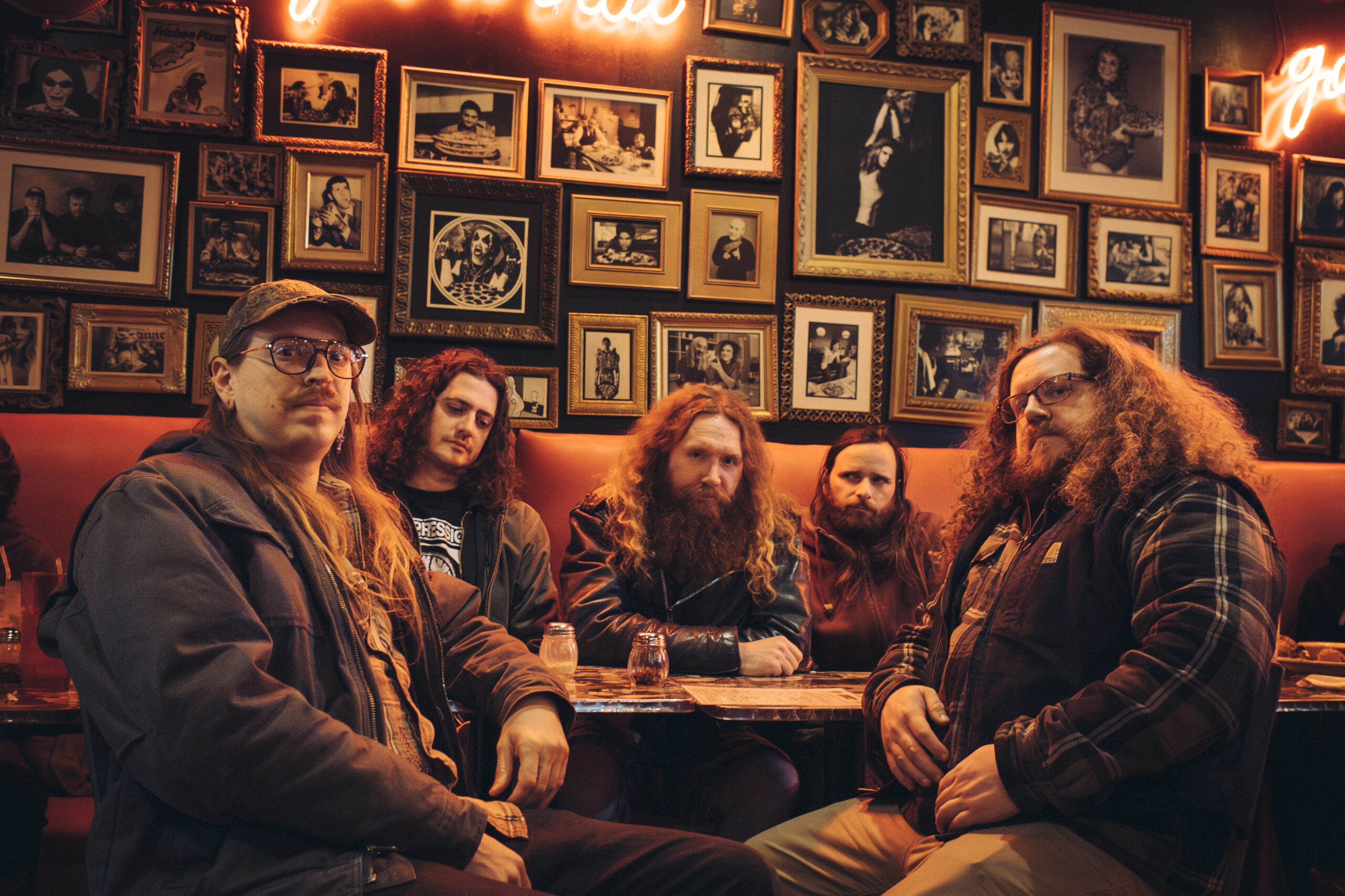
Inter Arma
-
press contact
-
hi-res photos
-
assets
They call it the Inter Arma Curse: For nearly two decades, as the boundless Richmond crew has emerged as one of the most inspired and fearless acts in or around American metal, they have endured an endless parade of complications, hurdles, and slights: visa problems in Russia, stolen passports in Europe, unexpected member turmoil in their ranks, and a pervasive paradoxical sense that they have either been too metal or not metal enough. It’s been forever Sisyphean, except they have sporadically crested the hill to make a series of visionary albums.
As Inter Arma started to shape the follow-up to 2019’s masterful and relentless Sulphur English, the curse roared to life like some long-dormant virus. Worldwide pandemic that squashed tours and writing sessions aside, they churned through four bassists before finding salvation in Joel Moore, a guitar-and-engineering whiz who had never before played bass in a band. While visiting a friend on rural backroads, Inter Arma sparkplug T.J. Childers soon crashed Moore’s car, his life saved (but face scarred) by colliding with a tree. Days later, Moore, on tour with Revocation, pulled a body from a rubble when a tornado hit the Illinois venue they were playing. And when Inter Arma finally made it into the studio in September 2023, the space they’d carefully picked resembled an episode of Hoarders, albeit one where the objects of obsession were stacks of vintage gear in various stages of neglect. The five members and longtime collaborator Mikey Allred spent nine hours cleaning the space before they could play. And at last, despite it all, they got to work.
New Heaven—Inter Arma’s sixth album and their first set of originals in five years—is a compelling testament to perseverance, top to bottom. Its thicket of ever-dense layers of doom, death, and black metal occasionally let bits of light slip in, fleeting reminders to keep going amid the tumult. And Mike Paparo’s keen and empathetic lyrics about innocent victims of war, addiction, and social apathy affirm that feeling, as a survivor grimaces at the carnage behind him and presses ahead best he can. “You stared into the brutish jaws of strife’s heartless device,” he growls into a chthonic blitz during “The Children the Bombs Overlooked,” a late-album powerhouse. “And you turned your back to hell.” That forward march out of madness is New Heaven in an armor-plated nutshell.
With the exception of the 2020 covers set Garbers Days Revisited, every Inter Arma album since Sky Burial has galloped beyond the one-hour mark without so much as a glance back. New Heaven’s 42-minute runtime—that is, a single LP with two distinct halves—need not be seen as some lack of ideas or ambition. Rather, New Heaven functions like an intricate obsidian flower, with musical moments that Inter Arma would have once let unspool into extended digressions tucked into corners, little details left for the repeat believer.
Take the opening title track, its hair-raising lead riff stemming from Childers’ challenge to himself to write a nonsensically dissonant part that he ended up loving. Athletic and obdurate, the song spirals upward into a punishing death-metal march, Paparo’s stentorian bellow the bludgeon above an impossibly complicated web of riffs and rhythms. Before they found Moore, Childers admits, this is the kind of music Inter Arma could have never executed. Listen for the uncanny keyboards wedged between Paparo and band, for the ways Steven Russell and Trey Dalton coil and collide with Moore, for Childers’ way of slipping some Southern soul into what borders on truly brutal prog. In just more than seven minutes, Inter Arma creates its own new world.
This push-and-pull between finesse and force is New Heaven’s hallmark, the quality that makes it such an electrifying and compulsive listen. A transmission from an abyss of mental illness, “Desolation’s Harp” often churns like supreme black metal. But breaks in that pace for guitar runs that never resolve and distortion in Paparo’s voice speak to the song’s central depravity. Again, so much happens in these four minutes, Inter Arma pushing past a plight as best they can. There’s perhaps no better illustration of all this than “Concrete Cliffs,” one of Inter Arma’s most magnetic songs to date, its forlorn riffs pulled tight until it catches like razor wire. The band seesaws between piledriving momentum and swirling oblivion, as if always trying to find some new path ahead out of unceasing trouble. It is a note to self to stay alive, to see what else may be in store.
Like many Inter Arma albums before it, New Heaven ends with an acoustic dirge, a hangdog country song about a man who has chosen a life of brain-breaking isolation in a cabin in Virginia’s deep woods. It is a heavy listen, the final testament of someone still living who has chosen not to survive in any substantive way. The way it hangs at the end like a miasma reinforces a central takeaway of New Heaven: Though this is indeed another Inter Arma triumph, it is not a triumphant album, meant to offer some glib or naïve assurance that everything will be fine.
What evidence is there for that, really, either on a record where friends are forced into submission, addiction, suicide, or retreat or in a world where suffering remains the lingua franca? No, Inter Arma and New Heaven are too realistic and experienced for that. This is, instead, a record about enduring brambles and curses and lasting long enough to make something profound, honest, and even affirming about it all every now and again—exactly as Inter Arma has on New Heaven.




